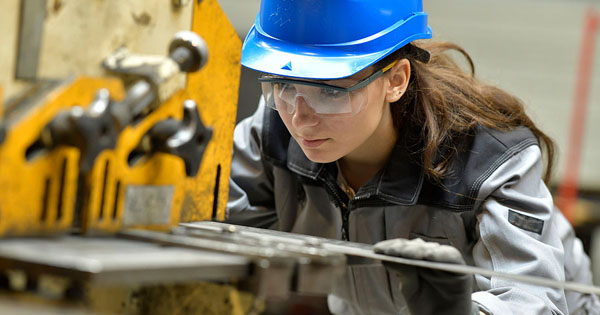OPINION
Help more students access quality job apprenticeships
By SENS. KAREN KEISER and EMILY RANDALL
(Nov. 22, 2021) — You often hear that a college degree is the only path to secure high-wage, high-skill employment. But that’s not how it has to be.
We could build a system that opens the door to a successful future for so many more Washingtonians. With more than 20,000 apprentices enrolled in registered state apprenticeships in our state — enough to create a decent sized college — we have the blueprint.
Most are enrolled in the traditional building trades model, but we are creating new nontraditional apprenticeships in health care, public education, technology and engineering. Career Connect Washington is a new state initiative doing tremendous work in this area. But our state needs to do more to re-connect people who’ve dropped out of the workforce.
When Fei Zhou came to the U.S. from China, she had been out of the workforce for 20 years raising her daughter. Without experience, she wasn’t able to find a job to help support her family. Then she learned about the medical assistant apprenticeship through the Health Care Apprenticeship Consortium. After 288 hours of classroom and lab, and 2,000 hours of work experience, she is now a medical assistant working at Kaiser Permanente.
“You help people every day,” Fei says. “In this clinic we have a lot of Chinese patients, and if they know I speak Chinese and the doctors speak Chinese, they feel more comfortable.”
Now Fei is planning to start studying to be certified as a medical interpreter. She is thrilled by how she has been able to take ownership of her career through her apprenticeship.
School districts like Highline and Kent have new programs to transform classified staff into certified public-school teachers. Peninsula School District has a thriving Skilled Trades Pre-Apprenticeship Program where students train for five industry-related certifications, earn 11 college credits at no cost, and earn their third year of high-school math. The South Kitsap Controls Specialist Apprenticeship Program leverages the career-connected learning attributes of a registered apprenticeship to support the needs of employers in the built environment.
Apprenti, a high-tech, state-registered apprenticeship, recruits women, people of color and veterans, and has placed more than 1,300 apprentices nationwide with an average starting salary of $66,000 and a median salary of $102,000.
Apprentices “earn while they learn,” with both classroom instruction and supervised on-the-job training. This model makes apprenticeships accessible to many — especially women and people of color — who can’t take time off work or afford to go to a traditional college or university.
As one apprentice, Daniel Floresca, put it, apprenticeship “provided me an opportunity to pursue my dream career while solving the question of how to pay for it.”
But right now, these benefits are out of reach for many because many high-growth fields simply lack existing or sufficient apprenticeships.
That’s why in the coming legislative session, which starts in January, we’ll be sponsoring legislation to strengthen existing apprenticeships, provide parity with traditional college paths and build innovative new apprenticeships in growing job fields.

Our first goal is to create permeable pathways between apprenticeships and higher education so that apprenticeship students are treated equally when it comes to tuition and grants, and successful apprenticeship graduates earn an associate degree and have a clear pathway toward a four-year bachelor’s degree.
Our legislation would do away with an outdated tuition waiver system and instead fund apprenticeship students at parity with traditional college students. It would also remove red tape that prevents them from using the Washington College Grant and reform outdated course credit systems that keep apprentices from receiving full credit for their course work and on-the-job training.
Our second goal is to expand apprenticeships across the board. This builds on great work that the building trades have been doing for years, in addition to the advances that the Workforce Education Investment Act has made since the Legislature passed it in 2019.
Our legislation would reorganize existing apprenticeships by economic sector, giving industry stakeholders the tools to work together to modernize and improve their offerings, as well as filling gaps in rapidly changing industries.
Simultaneously, we would help stand up and bring to scale innovative apprenticeships in fields — like health care, technology and behavioral health — that are expected to see significant growth in the coming years.
For too long, apprenticeships have taken a back seat to traditional college, both in state funding and in our culture. It’s time to change the conversation and, more importantly, level the playing field. That’s how we can create the kind of full career pathways that allow for real advancement.
 Sen. Karen Keiser (D-Des Moines) chairs the Washington state Senate Labor, Commerce and Tribal Affairs Committee and serves as president pro tempore. A Democrat, she represents the 33rd District that includes parts of Burien, Normandy Park, SeaTac, Kent and Des Moines.
Sen. Karen Keiser (D-Des Moines) chairs the Washington state Senate Labor, Commerce and Tribal Affairs Committee and serves as president pro tempore. A Democrat, she represents the 33rd District that includes parts of Burien, Normandy Park, SeaTac, Kent and Des Moines.
 Sen. Emily Randall (D-Bremerton) chairs the Washington state Senate Higher Education and Workforce Development Committee and is majority caucus whip. A Democrat, she represents the 26th Legislative District that includes Bremerton, Port Orchard, Key Peninsula and Gig Harbor.
Sen. Emily Randall (D-Bremerton) chairs the Washington state Senate Higher Education and Workforce Development Committee and is majority caucus whip. A Democrat, she represents the 26th Legislative District that includes Bremerton, Port Orchard, Key Peninsula and Gig Harbor.
This opinion column originally appeared in the Seattle Times and is cross-posted here with the authors’ permission.





